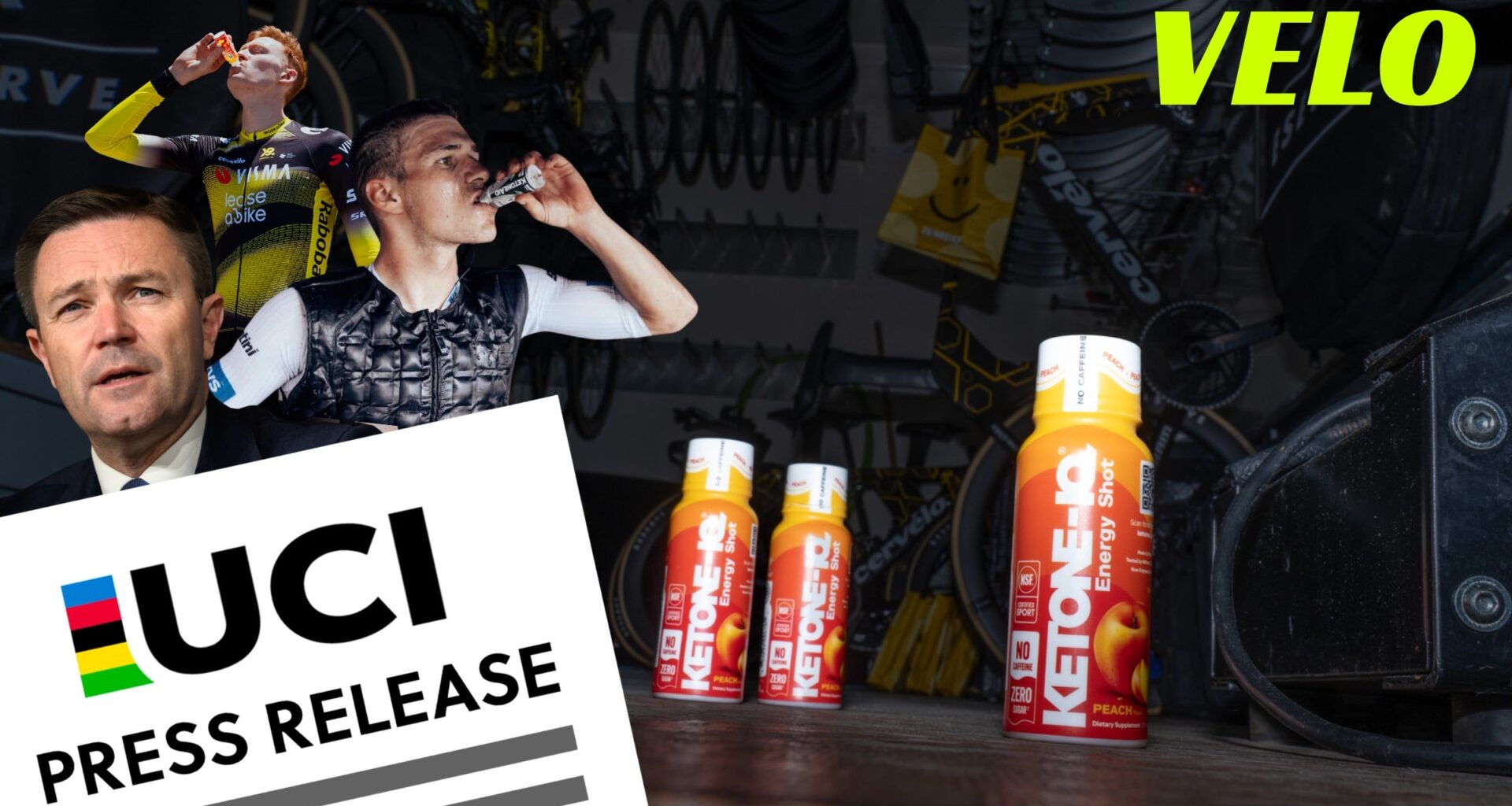Updated October 28, 2025 01:35AM
The UCI last week concluded that ketones are pointless but held back from banning them in a bizarre press release that leaned on an unsourced study.
Sounds weird?
Yep. The whole UCI statement was something of a headscratcher.
New and uncited science that refutes previous studies. A recommendation to stay away from a supplement that apparently serves no purpose. A suggestion that falls short of a ban.
And now it seems nobody is happy – not even cycling’s anti-doping watchdog, the MPCC.
“This is the problem of grey areas. For some, everything that is not forbidden is allowed,” the group told Velo.
The statement issued by cycling’s governing body last week reignites the sport’s most anachronistic debate.
Supplementing with ketones – drinks once labeled as “U.S. forces super fuels” – first stirred controversy when Tadej Pogačar was still in kindergarten.
The peloton has been divided over ketone supplementation ever since.
The MPCC group warns its members away from synthetic chemicals it has demonized as doping-adjacent and potentially dangerous.
Meanwhile, the rest of the peloton is pounding ketone shots on the daily.
For scores of pro cyclists, ketones have become as common as pre-ride coffee and post-race cherry juice. Whether training at home or racing Paris-Roubaix and the Tour de France, ketones have become just another quarter percenter.
A confusing statement on ketones
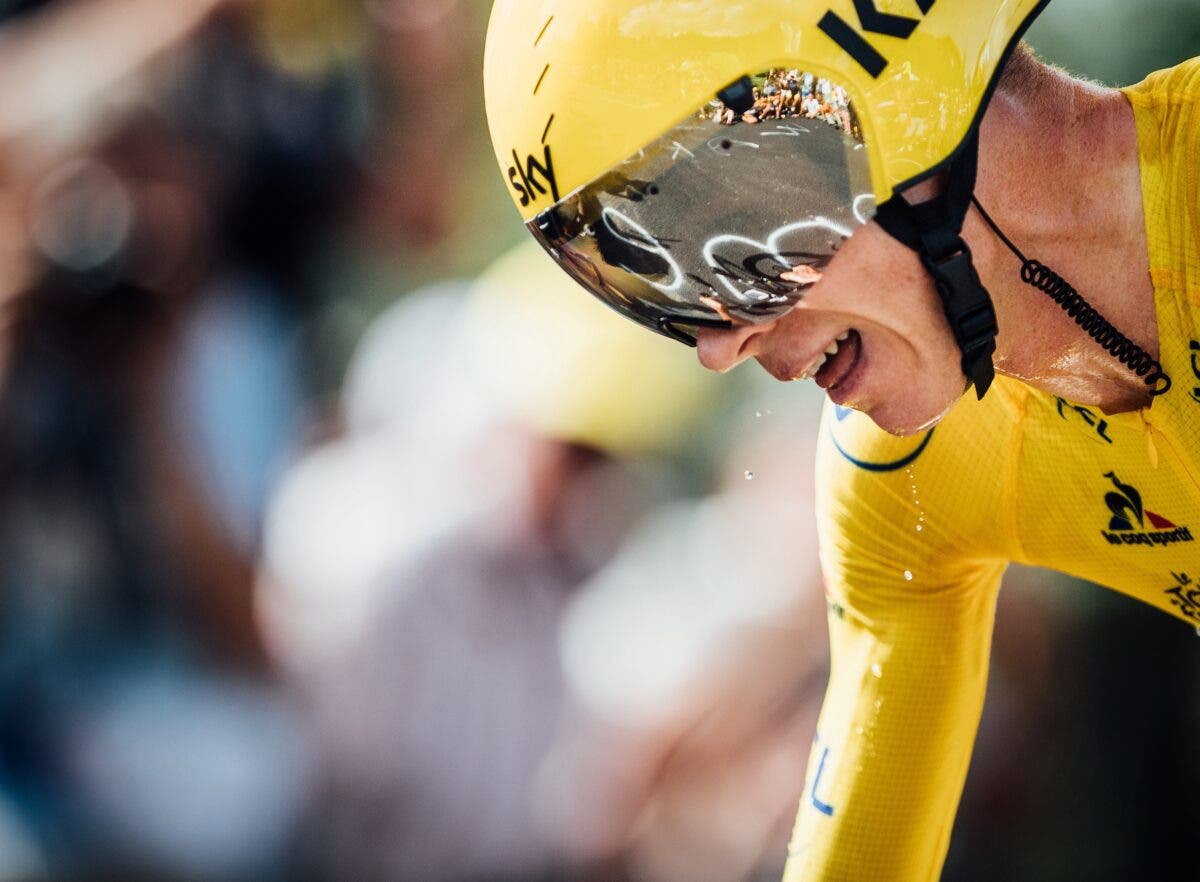 Ketone esters have been problematic since they emerged out of UK university labs in the 2010s and became linked to British Cycling and Team Sky. (Photo: Gruber Images)
Ketone esters have been problematic since they emerged out of UK university labs in the 2010s and became linked to British Cycling and Team Sky. (Photo: Gruber Images)
As a brief reminder, ketones are chemicals naturally produced in the body when it’s deprived of glucose.
It’s thought that supplementing with ketones can spare muscle glycogen, potentially making them “a fourth macronutrient” for endurance and recovery.
Also read: How a US Forces ‘Super Fuel’ Became an Everyday Recovery Aid at the Tour de France
In a press statement released last week, the UCI referred to a “very comprehensive, high-quality study” that it claims rings a death knell for ketones.
The governing body first reminded that some studies show ketone supplementation doesn’t benefit endurance. It then referenced some mysterious, unsourced, new science that refutes the common consensus that ketones turbocharge athletic recovery.
In light of these potentially pivotal findings, the UCI served world cycling a prime nothing burger.
“As there is no compelling evidence that ketone supplements enhance performance or recovery, the UCI sees no reason for them to be used. Therefore, the UCI does not recommend the inclusion of such supplements in riders’ nutritional plans,” read the press release.
That’s the type of non-statement a politician would be proud of, and a conclusion that will only prolong an already overrun debate.
No fixed date, but conclusions will be published ‘soon’
 The UCI promises the details of its new ketone study will be published soon. (Photo: FABRICE COFFRINI/AFP via Getty Images)
The UCI promises the details of its new ketone study will be published soon. (Photo: FABRICE COFFRINI/AFP via Getty Images)
The UCI’s press statement didn’t detail the hypothesis, author, or methodology of its ketone paper.
Velo asked the UCI for further explanation, and the information shared was scarce.
“This study is currently with a scientific journal and is expected to be published soon. While we do not yet have a confirmed publication date, we will share the article and author’s contact details with you once it becomes available,” a UCI spokesperson told Velo.
Reading between the lines, the new paper appears to be the findings from a research project the UCI started four – yes, four – years ago.
The project’s mission?
To draw a line under cycling’s so-old-it’s-boring question about ketones.
Even the anti-doping group isn’t happy
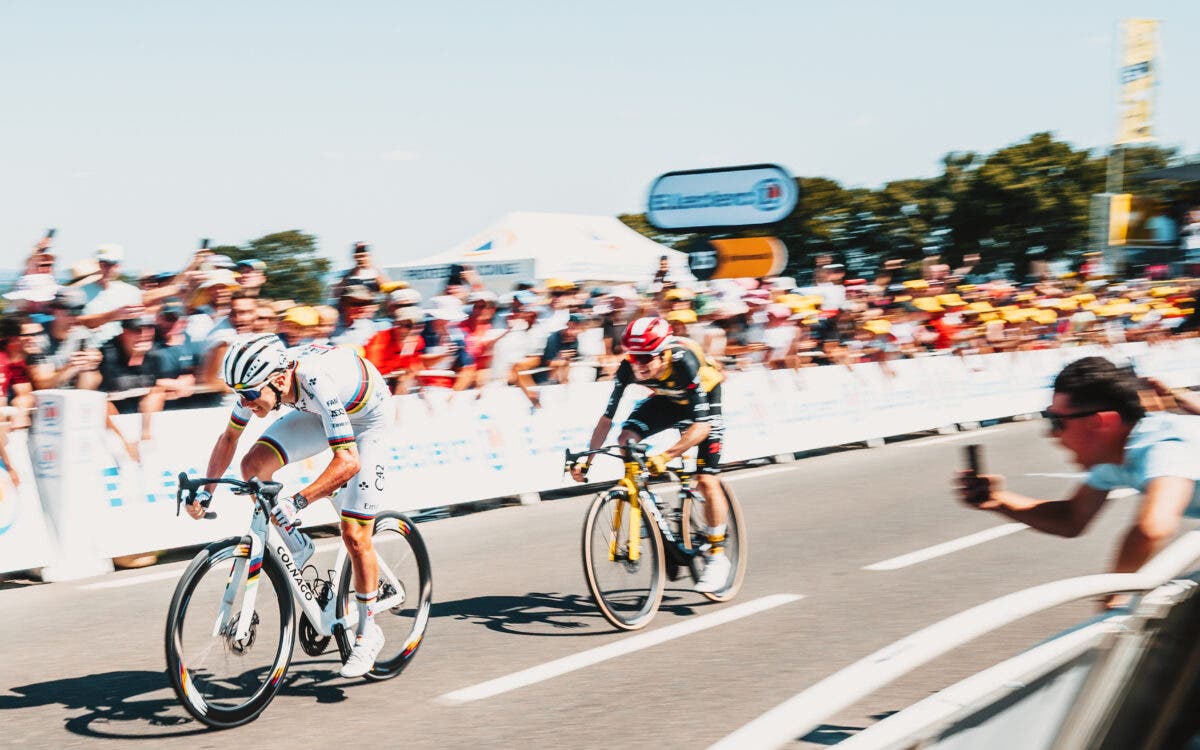 The MPCC group considers ketones to be a doping-adjacent product that creates a peloton at two speeds. (Photo: Gruber Images)
The MPCC group considers ketones to be a doping-adjacent product that creates a peloton at two speeds. (Photo: Gruber Images)
The ketone debate feels so old it’s like arguing over rim vs. disc brakes.
But unlike that old chat, the consternation over these synthetic supplements is hanging around like a turd that won’t flush.
The reason? A peloton split between ketone converts and abstainers affiliated with the MPCC.
Roger Legeay worked as president of the “Mouvement Pour un Cyclisme Crédible” for 20 years until he retired last week.
He told Velo before he stepped down that the UCI’s statement only invited the exploitation of the “grey areas” his group is fighting against.
“This is the problem of grey areas. For some, everything that is not forbidden is allowed,” Legeay told Velo.
“Then we learn a few years later that these are doping products and put on the list of banned products. This was the case with corticosteroids, tramadol, etc,” he said.
Ketones have the green light from WADA. With that, Legeay and the MPCC believe it should be the UCI’s priority to police a supplement they think creates a two-speed peloton of consumers and abstainers.
“WADA takes too long between use by athletes and their ban. This is also the case today with carbon monoxide or tapentadol,” Legeay said of ketones.
Legeay’s concerns about ketones can seem hyperbolic.
These supplements are slurped en masse by athletes of all varieties. They’re bigged up by biohacker brainiacs on every passing “wellness” podcast. Heck, you can go get some now from your local Target or Whole Foods, or have them delivered to your doorstep by Amazon.
Ketones have become just another part of a supplement stack of creatine, caffeine, beta-alanine, and all in between.
‘Big Ketone’ hits back
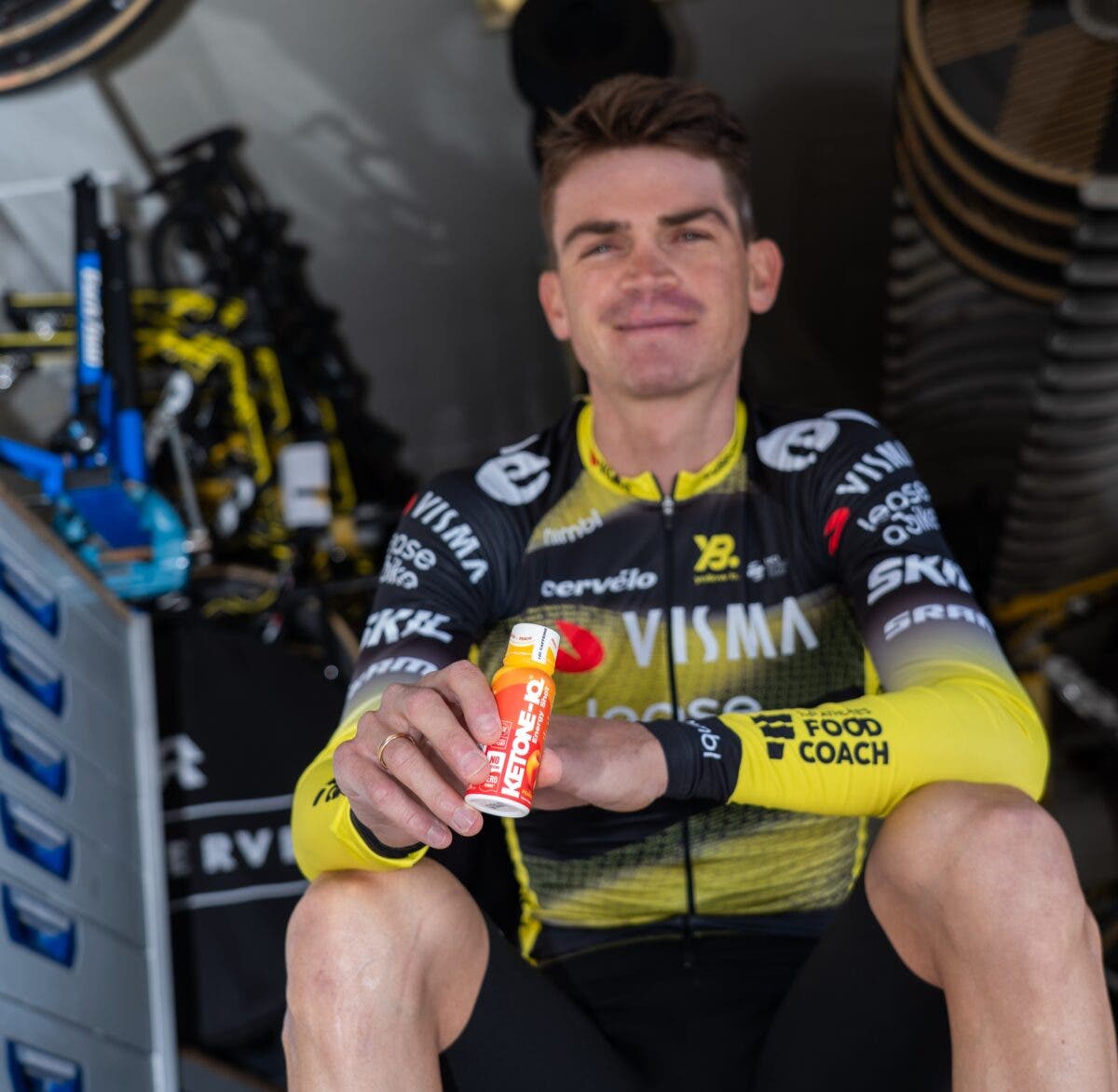 Visma-Lease a Bike partners with Ketone-IQ and worked as guinea pigs in the brand’s recent study. (Photo: Courtesy Ketone-IQ)
Visma-Lease a Bike partners with Ketone-IQ and worked as guinea pigs in the brand’s recent study. (Photo: Courtesy Ketone-IQ)
Most teams are so comfortable with ketones that they partner with mass-market suppliers.
Visma-Lease a Bike, Alpecin-Deceuninck, and Soudal Quick-Step all count ketone sponsors on their team profiles. Visma’s “Killer Bees” are even guinea pigs for studies conducted by their partner, Ketone-IQ, and feature on its promo material.
In fact, a paper titled “Study with Team Visma-Lease a Bike: Ketone-IQ boosts natural EPO, blood flow, and recovery in elite cyclists” was finished up only this summer.
It’s no surprise that Ketone-IQ co-founder Michael Brandt was miffed at the UCI’s new statement. However, the outlook he shared with Velo would make the MPCC cringe.
“My response is that we respectfully disagree,” Brandt told Velo. “Our stance continues to be that measures — nutrition or otherwise — that improve rider performance with little or no downside should be unequivocally allowed.
“I put altitude training, innovation in carbohydrate formulation, and ketones all together among other measures in this category. Healthier, stronger riders are safer riders, which is a win for the entire sport.”
Ketone-IQ competitor KetoneAid supplies Soudal Quick-Step.
The Belgian team’s outgoing Olympic superstar Remco Evenepoel has been pictured guzzling ketones at races as high-profile as the Tour de France.
KetoneAid CEO Frank Llosa was as perplexed as everyone else who’s trying to unpack the point of the UCI cautioning against, but not prohibiting, a “pointless” performance supplement.
“If we’re issuing guidance on supplements without performance benefits – are we expecting position papers on cherry juice next? What about M&Ms now that they’re sponsoring the Tour?” Llosa told Velo.
“What’s puzzling is why the UCI feels the need to issue recommendations about something they claim doesn’t work,” Llosa said. “If ketones are safe and ineffective, why not let riders make their own choices? When Remco wants to use them between Olympic events because he feels they help his recovery, why should the UCI care?”
Velo contacted off the record a handful of teams and riders who currently use ketones.
They’re choosing to ignore the UCI’s new recommendation.
Another chapter in the ketone debate
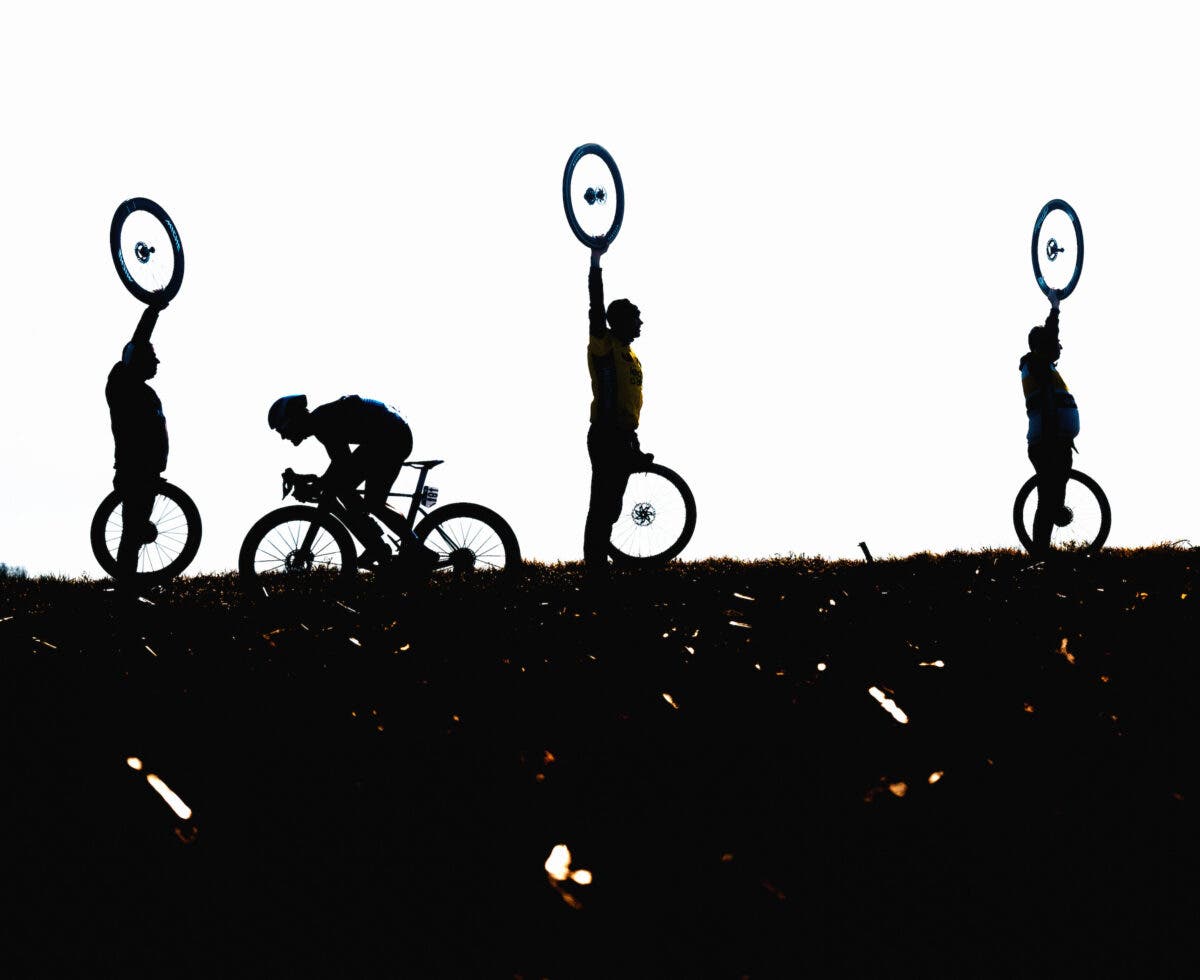 The UCI’s recent statement reignited the discussion of ketones. (Photo: Gruber Images)
The UCI’s recent statement reignited the discussion of ketones. (Photo: Gruber Images)
Llosa has a point. Why bother weighing in on a “pointless” placebo?
But MPCC chief Legeay’s concerns are equally valid.
Neither clamping down nor giving the go-ahead to a divisive – if common – one-percenter like ketones almost encourages athletes to meddle in the margins elsewhere.
Riders will always push the line in a sport that’s accelerating to extremes.
Cyclists are still getting banned by the UCI for old-school blood-doping techniques, and WADA is being forced to react to the peloton’s use of carbon monoxide.
No winners from UCI’s ketone study?
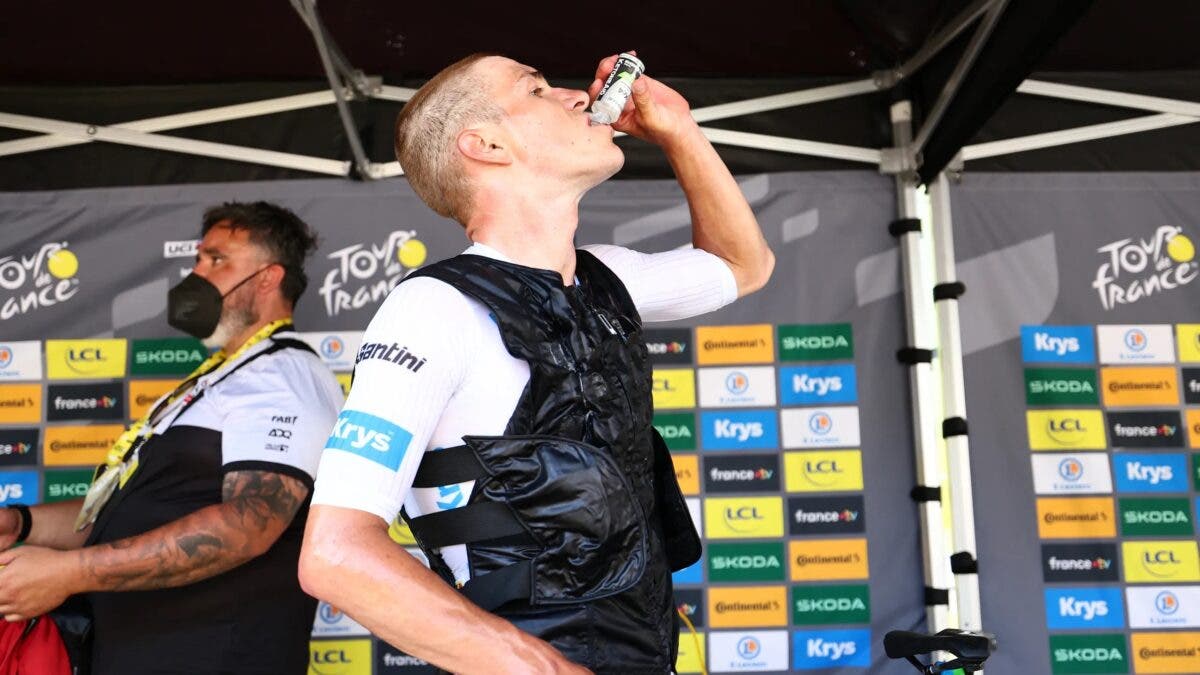 Evenepoel’s former Quick-Step team partnered KetoneAid. His incoming Red Bull team recently left MPCC and so is free to use the supplements, too. (Photo: Getty Images)
Evenepoel’s former Quick-Step team partnered KetoneAid. His incoming Red Bull team recently left MPCC and so is free to use the supplements, too. (Photo: Getty Images)
If anything, the UCI’s non-statement feels like a rushed-out box-ticking exercise.
More significantly, it solves nothing.
The MPCC “clean cycling” group isn’t content with a “conclusion” that creates confusion.
The scores of non-MPCC riders who use ketones will again be subject to suspicion for dabbling in non-UCI-approved methods.
And of course “Big Ketone” is pissed, too.
The UCI told Velo its groundbreaking study will be published soon.
Will its release put an end to cycling’s consternation over ketones?
Not likely.
If the science-backed WorldTour is getting kicks from ketones, they’ll continue to take them until they’re rightly or wrongly banned.
